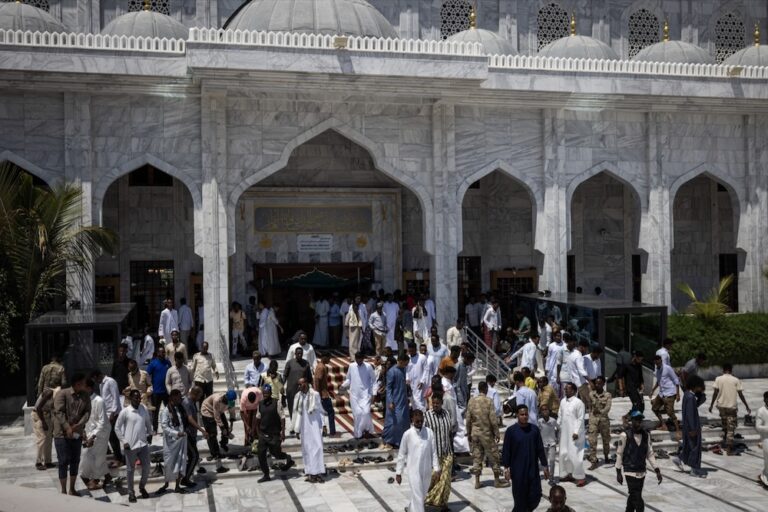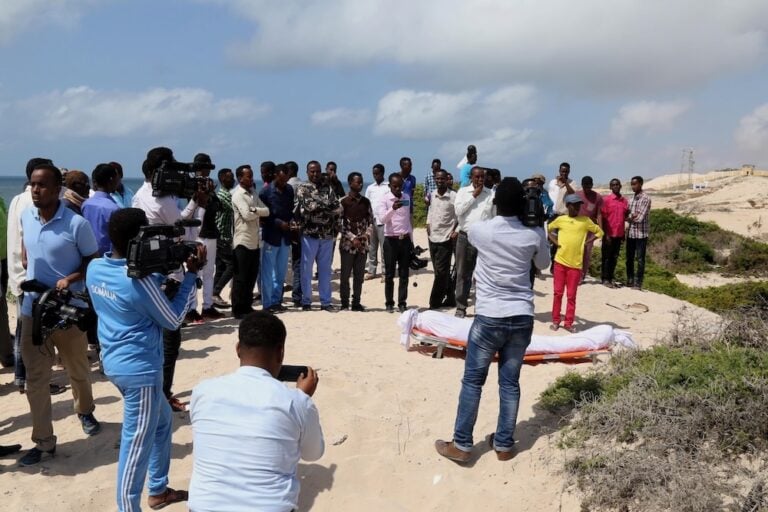(IFJ/IFEX) – The following is an IFJ press release: IFJ Warns of New Targeting Threat as BBC Reporter is Killed in Somalia The shooting of a British journalist working for the BBC today by unidentified gunmen outside her hotel in the capital of Somalia has the hallmarks of a targeted attack that threatens all media […]
(IFJ/IFEX) – The following is an IFJ press release:
IFJ Warns of New Targeting Threat as BBC Reporter is Killed in Somalia
The shooting of a British journalist working for the BBC today by unidentified gunmen outside her hotel in the capital of Somalia has the hallmarks of a targeted attack that threatens all media staff working in the country, warned the International Federation of Journalists today.
Kate Peyton, 39, a producer based in Johannesburg, was taken to the Madina hospital in Mogadishu for an operation to remove a bullet wound to her back but later died of internal bleeding. The circumstances surrounding the incident remain unclear, but according to local reports Peyton was entering the Hotel Sahafi (“Sahafi = Journalist”) when two masked men drove by in a taxi and shot her in the shoulder.
“The fact that she was shot very close to the journalists’ hotel in Mogadishu suggests that the lawlessness that made journalists prime targets in Somalia during the 1990s is far from finished,” said Aidan White, IFJ General Secretary. “This should be a warning to all media that political promises of an end to the violence are a long way from being delivered.”
Peyton was one of a number of foreign reporters in the Somali capital covering a government team that is assessing conditions in the capital, ahead of a plan to relocate the Somali government to Mogadishu from its current exile in Nairobi. The transitional Somali government has been based in Nairobi since they came to power a few months ago amid continued fears of instability in Somalia.
The country of about 10 million people has been a theatre of anarchic bloodletting since Mohammed Siad Barre was toppled in 1991, plunging the nation into a patchwork of fiefdoms governed by warlords and a high degree of mob-rule and street violence.
Between 1993 and 1998, 15 journalists were killed; ten of them foreign correspondents during a period when the United Nations and the United States vainly attempted to restore stability in the country.
Peyton had worked for 10 years in Africa and began working for the BBC as a producer and reporter in 1993. She also worked as a producer and trainer for the South African Broadcasting Corporation in Johannesburg.
While police continue investigating and say they have located the taxi and the pistol used in the attack, the two men involved have still not been tracked down. The IFJ affiliate in Somalia, the Somali Journalists Network (SOJON), is following the case.
“This shooting is a chilling reminder that journalists, particularly foreign correspondents, face a high risk in trying to cover the latest efforts to bring peace and stability to Somalia,” said White.
The IFJ represents over 500,000 journalists in more than 110 countries.


